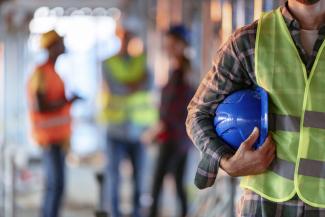Professional Regulation

Professional Regulation manages the licensing, testing, registration, and discipline of over 30,000 people in 67 trade jobs. It also oversees the activities of seven licensing Boards, with 56 members representing different professions.
Our purpose is to review and license all applicants for the Board of Examiners of Electricians, Board of Hoisting Engineers, Mechanical Board, Board of Examiners of Plumbers, and Board of Telecommunications System Contractors and Technicians, including Burglar Alarm Business and Agents.
The unit gives exams to electricians, hoisting engineers, pipefitters, refrigeration technicians, fire protection sprinkler fitters, sheet metal workers, plumbers, and telecommunication system contractors and installers.
Announcement: Clarification regarding RIGL 5-6 From the Board of Examiners for Electricians
The Board of Examiners of Electricians confirms that the use of plug-in receptacle testers and testing buttons on GFCI receptacles do not require a license under RIGL 5-6, as these activities do not involve direct testing of the wiring. This clarification aims to help unlicensed individuals understand the requirements related to electrical work.
Licensing, Regulations, and Resources
Trade License Applications and Exams
Professional Regulation Boards
Board of Examiners of Electricians
Board of Examiners of Hoisting Engineers
Board of Examiners of Mechanical